Thanks to all the enthusiasts who choose to devote their holidays to a conservation project, it has been possible to continue the research effort to date. Oceanomare Delphis ecotourism camps study cetaceans in the central Tyrrhenian Sea (Italy), and research expeditions are supported through the participation of volunteers. The fee paid to participate in the camps is entirely used to cover project expenses. Your contribution helps us sustain our study and conservation activities.
Whale-watching and support to the conservation
Identifying cetaceans' critical areas is the main aim of the project. Key zones can be feeding or breeding grounds, as well as preferred routes used by the animals in the Mediterranean Sea. The identified areas are brought to the attention of policymakers and leaders, suggesting methods for their protection and management. In addition to research, the project aims at education and outreach to expand people's knowledge and awareness of the conservation needs of Mediterranean whales and dolphins.

Jean Gab, our research vessel, sails in the central Tyrrhenian Sea, in the waters of the Campanian and Pontine archipelagos, off the islands of Ischia, Procida, Capri, Ventotene, and Ponza. The study area represents a unique opportunity to study cetaceans because seven different Mediterranean species have been recorded there since 1991.
We are looking for passionate people who want to make a personal commitment to cetacean conservation.
No special training is required to participate, just a spirit of adaptation and a lot of enthusiasm.
Participants in our expeditions have an unforgettable experience, meeting animals in their environment and learning about the risks they face such as habitat degradation, declining resources, chemical, and noise pollution.
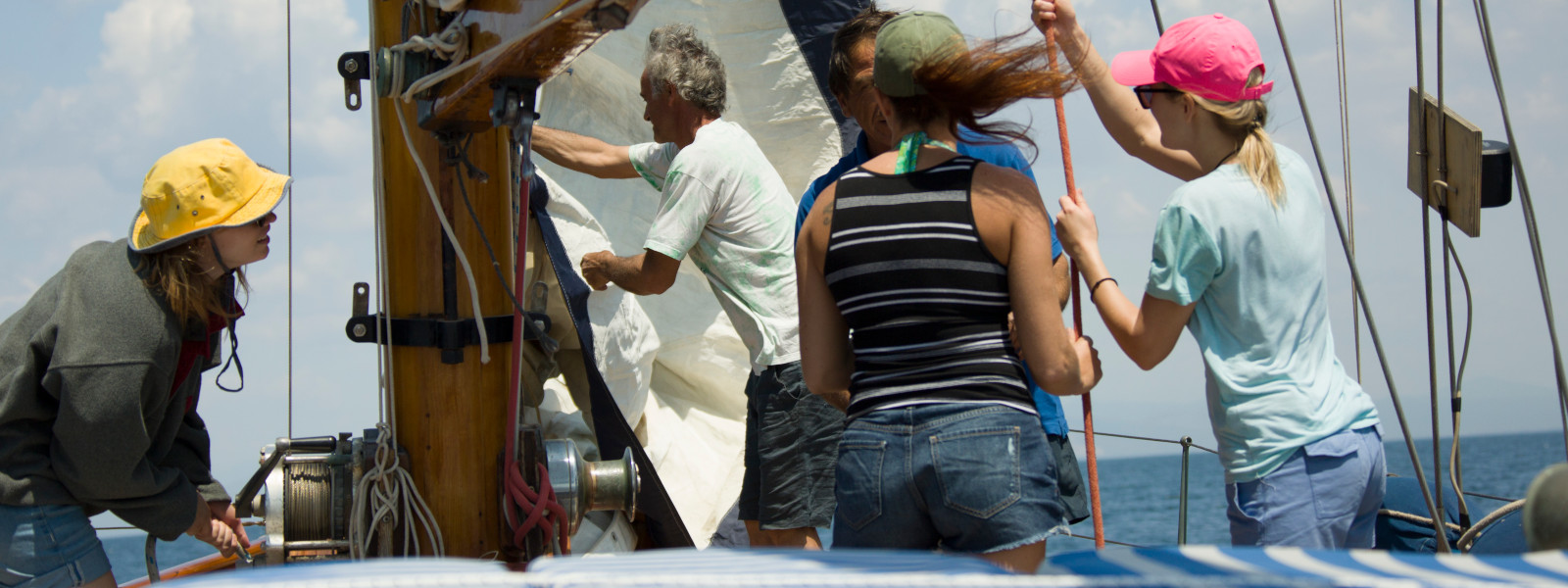
The experience focuses on personal growth, socially responsible behaviors, and teamwork and allows participants (enthusiasts, students, teachers, journalists, researchers...) to transfer the values of biodiversity and species richness of the Mediterranean.
The boat environment promotes the values of recycling, energy efficiency, water and resource conservation, and a simple lifestyle.
The encounter with charismatic animals
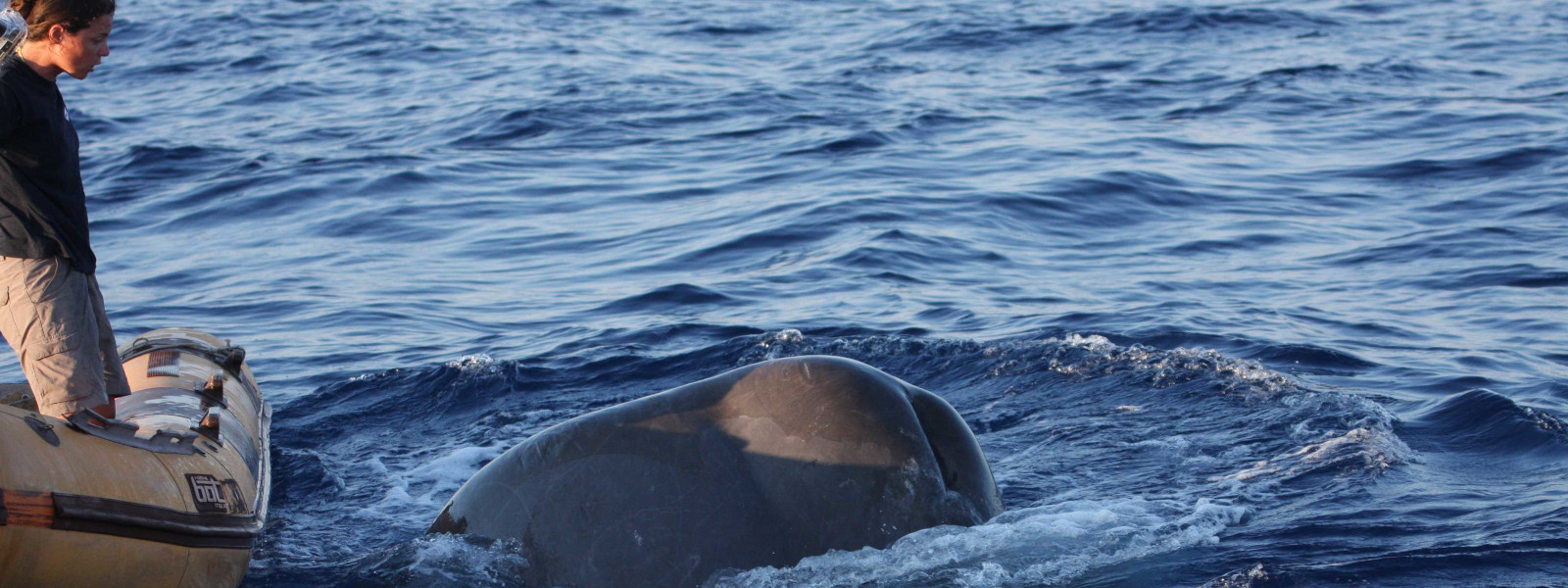
such as dolphins and whales in their natural environment, and understanding their complex behaviors, societies, and threats, help to understand primary conservation issues, including habitat modification, overfishing, resource depletion, and pollution.
Participants leave the projects with a good knowledge of cetacean field research techniques that could be useful in future experiences. In addition to learning about cetaceans and their environment, the world of research, and animal conservation, meaningful human experiences are also possible.
Participants
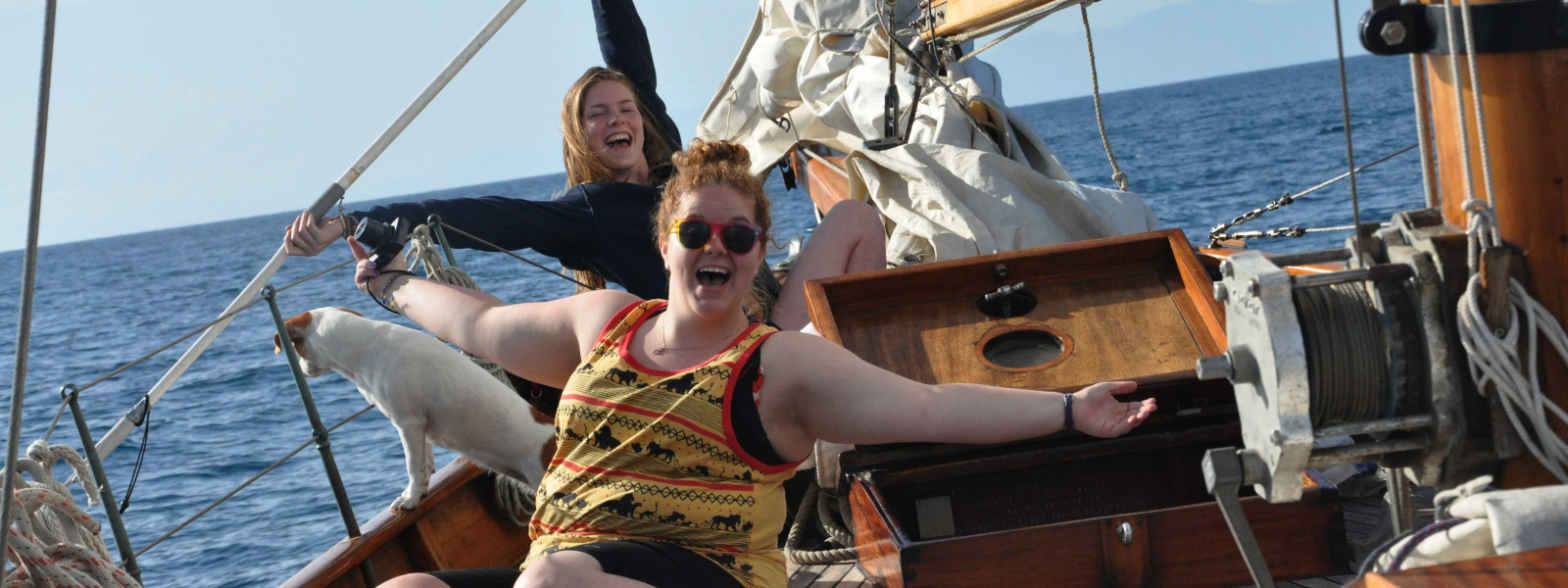
Participants come from all over the world and live aboard the research vessel, which sails mainly under sail.
During their stay, days are devoted to research activities, and each volunteer is involved in fieldwork.
During sightings, everyone on board performs a specific task. The coordination of the group is necessary for data collection and the progress of the sighting. A sighting can last several hours; meanwhile, daily operations, such as cooking and cleaning, also take place on board.
Cetacean lessons

The IDP team is the direct means of imparting knowledge about these animals. With the trust of volunteers and a deep understanding of the environment, researchers conduct lessons on cetacean behavior and biology and discuss conservation issues with volunteers. Participants are introduced to the project through presentations of the study area and the species present. Volunteers are instructed on how to take watching shifts and focus details at sea to spot animals, and data collection tasks are shared in preparation for animal encounters.
Watches
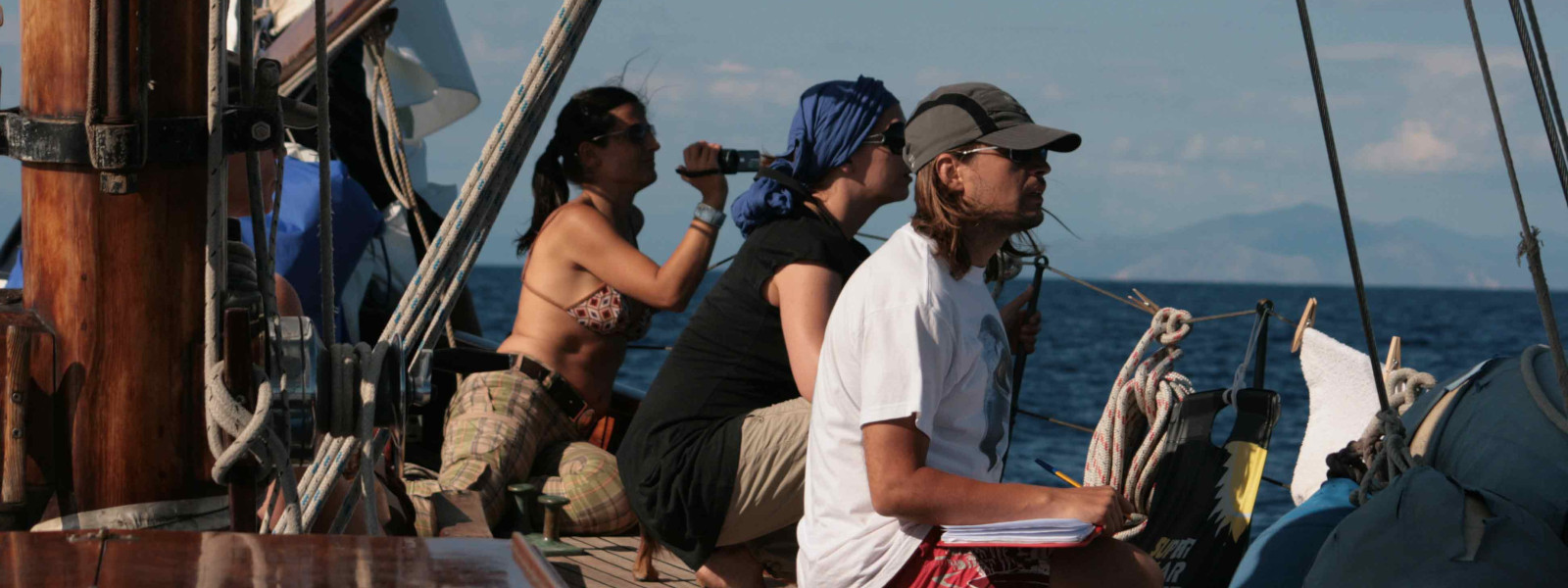
Participants and researchers engage in sighting with lookout shifts; two observers take turns in hour-long shifts to report the presence of marine life; in addition to whales and dolphins, sightings of sea turtles, tuna, swordfish, sunfish, manta, schools of fish, and seabirds are recorded.
During sightings, each person performs a specific task (measuring apnea times, counting the number of individuals, filming the animals) for which they have been trained beforehand.
The continuous listening and recording of cetacean vocalizations enable the volunteer to become familiar with animal sounds, learning to distinguish background noises from whale and dolphin sounds.
Seamanship
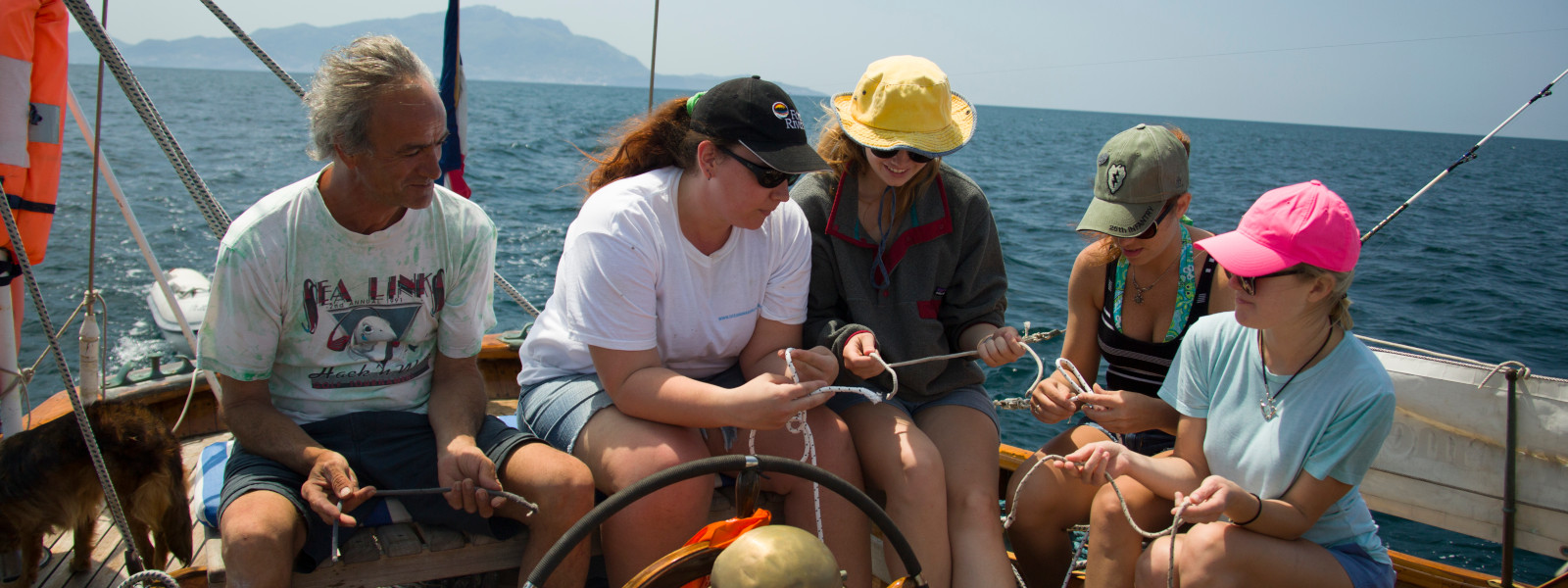
Interested volunteers can learn boat maneuvers for navigation such as sail trimming, steering, and becoming familiar with sheets, halyards, and compass... also they can make themselves useful during mooring maneuvers.
Many people who have participated in research camps in recent years say it is an unforgettable experience. In addition to learning more about dolphins and their world and coming into direct contact with the world of research and animal conservation, it is also possible to have enjoyable human experiences. All participants leave the project with a wealth of new knowledge, which may prove beneficial for future adventures.
Things that you can learn:
photography techniques and photo-identification methods;
techniques for conducting studies on cetacean bioacoustics and behavior;
use of programs and tools for dolphin research, particularly for bioacoustics (Logger, Rainbow Click, Whistle Detector, Pamguard, Audacity);
use of research and navigational instrumentation such as hydrophones, GoPro cameras, GPS (Global Positioning System), binoculars, VHF radios, etc.;
sailing and sailing seamanship techniques (basic operations such as hoisting and lowering, tacking fore and aft; knots; moorings);
hints on charting and navigation (upon request).
